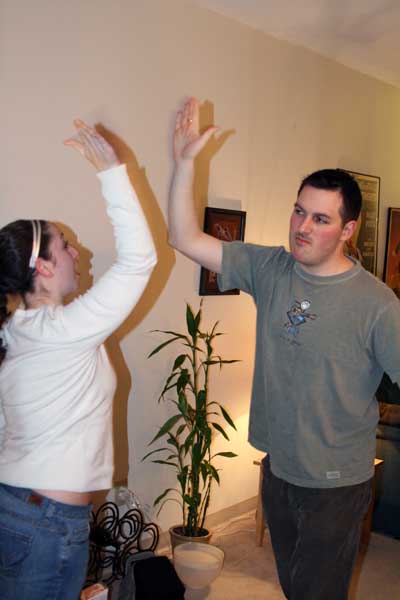Spoiler alert: You're not arguing about what you think you're arguing about.

September will always be back-to-school season in my mind––the sadness of summer ending, the excitement of seeing old friends again. All of those memories from childhood are good to hold onto. Some things from childhood are best left behind, however, such as childhood wounds. They represent a heavy book bag that weighs you down even in adulthood—and they can bring your relationship down, too.
In my decades as a marriage and family therapist, I have encountered innumerable couples and individuals whose emotional baggage from childhood harms their current relationship. They can't figure out why they keep having the same arguments or why little annoyances erupt into huge fights. In our sessions, I often find that the solution is something I call "reality testing."
Reality testing is just what it sounds like—testing how real the fight, and your feelings, are. Reality testing breaks down into three steps:
1. Identify your real feelings.
Anger almost always covers up truer, deeper feelings. You feel angry when your partner RSVPs you for a party you hadn't yet agreed to go too, or when he or she tells you they like you in blue when you're wearing a green shirt. You must look past the initial angry feeling and consider whether or not there's another emotion bubbling up as well.
You don't feel angry because of the RSVP; you feel like your partner is trying to control you. You don't feel angry because your partner said you look good in blue; you're scared your partner doesn't like the way you look right now. If you let yourself really delve into your feelings, you'll discover there's more there. That other emotion is the real feeling.
2. Assess their truth value.
Once you have connected with your feelings, you can examine their accuracy. Is your partner actually trying to control you? They want you to go to the party with them because they enjoy spending time with you; it was your dad who overbooked you and made you join every club at school. Is your partner actually criticizing your appearance? They paid you a compliment when they said you look good in blue; it was your middle-school classmates who routinely made fun of what you wore.
Don't kid yourself that childhood is "long ago and far away," or that you're "so over" childhood experiences you still recall with fear. These wounds will continue to pull you into the past until you assess their truth value.
One way to find the truth is to look at it from outside of your self. Considering other potential points of view, and what your partner might really be thinking, is a good way to get a clearer view of yourself and your issues. Or, you can take the direct route and just ask your partner to tell you the truth.
3. Reconsider the encounter and react appropriately.
Now that you know how you're really feeling, and you know how to check your feelings against the facts, you can differentiate what you assume you know from what you definitely know. You can think about what your partner did or said that upset you clearly and rationally, instead of filling in the blanks and overreacting.
https://www.psychologytoday.com/blog/mindful-anger/201509/3-ways-stop-having-the-same-fight-over-and-overWhen you're stuck in a fighting pattern and can't figure out why, the solution is reality testing. These three steps will help you to recognize when childhood baggage is dictating your relationship with your partner. When you can do that, I guarantee your relationship will become more honest, intimate, and fulfilling.


No comments:
Post a Comment